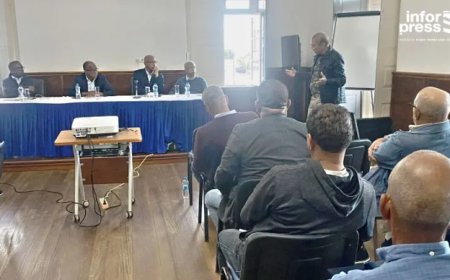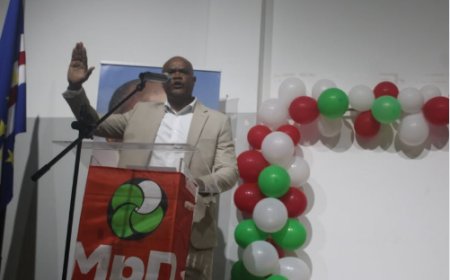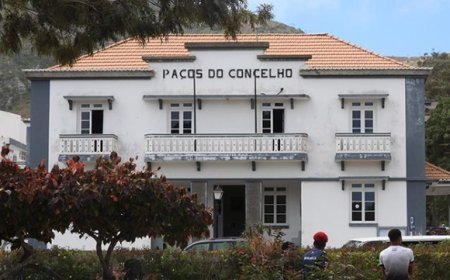The Geometry of Misgovernment - The Incoherence of Francisco Tavares, former Mayor of Brava, in a bet on the short memory of the voting population.
In politics, as in mathematics, coherence should be the rule. The equations need to be balanced, the variables logical and the results predictable. However, the political career of the former mayor of Brava, Francisco Tavares, resembles a chaotic equation, where a lack of common sense and incoherence defy any rational calculation.

(...) His "political boldness", so often celebrated, can be analyzed through a mathematical prism, where each promise is a variable and each action an operator. The problem arises when the final equation doesn't add up.
Tavares' management can be seen as a distorted application of set theory. In an ideal society, the set of citizens should be as comprehensive as possible, with intersecting interests that promote the common good. However, his government seemed to focus on creating subsets, or "ghettos" of support, isolating those who didn't align with his vision. His way of acting, privileging some to the detriment of others, resulted in an exclusionary equation, where the "benefited" group was always smaller than the "forgotten" group. If A is the set of those who supported Tavares and B the set of those who didn't, the set A ∪ B (the union of the two) didn't represent the totality of Bravense, because his political action seemed to ignore the rest of the universal set.
A political promise is like a mathematical parabola, with a starting point (the speech) and a maximum point (the expectation). Ideally, this parabola should intersect the axis of reality at a concrete point, in other words, the promise should be fulfilled. During his administration, we saw a festival of parables that never touched the ground. Miraculous projects, pharaonic investments and magical solutions to complex problems were announced, but the graph of real progress remained flat. The distance between the curve of promise and the axis of reality was the exact measure of its incoherence. "Boldness" was nothing more than multiplying promises by zero, always resulting in zero.
One of the most disconcerting aspects of his management was the inversion of priorities, which can be explained by the inversion of values theorem. In a logical system, the top priority (value 1) should be to improve the living conditions of the population. In his logic, this variable seemed to have a value close to zero, while others, such as self-promotion and political rivalry, gained exponential weight. The final equation was therefore:
Final Result ∝ Self-Promotion / Population Needs
In other words, the more they invested in image and the less they invested in people, the greater the inconsistency. Common sense, here, is the constant that should balance the equation, but it was systematically ignored, resulting in a flagrant imbalance and a solution that serves no one.
To this was added a dangerous conviction: that the memory of the people is a value that tends towards zero. Tavares seemed to operate under the assumption that, with time, unfulfilled promises would be forgotten, inconsistencies forgiven and mistakes erased. His attempt to return to the political limelight is perhaps proof that he is basing himself on a false variable, because collective memory does not cancel itself out. The actions of the past are not forgotten, they are just stored, waiting for the right moment to be used as proof of a lack of common sense and incoherence.
In short, Francisco Tavares' boldness will not be an act of courage, but a risky bet on a political equation without foundation. His lack of common sense, mathematically demonstrated by the gap between promise and reality, and his incoherence, visible in the inversion of priorities and the belief that popular memory is short, have left a legacy of distrust and frustration. The mathematics of politics don't lie: when the variables are incoherent and the logic is inverted, the result is invariably misgovernment.




















































